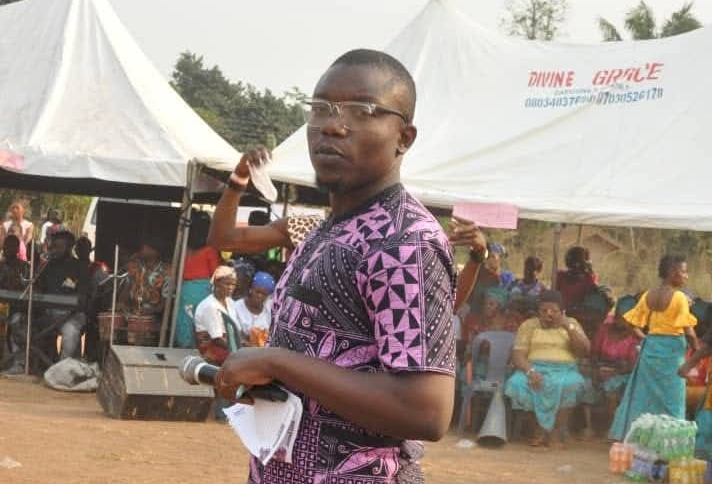By Sebastine chukwuebuka Okafor Bookastro, Iyi ana akpọ, ọ na egbu 1.
A few days ago, social media was filled with reports about a demonstration by the good people of Eha Amufu in Isi Uzo Local Government Area of Enugu State over the persistent attacks they experience from bandits.
I used the word “bandits” because, oftentimes, when some of these attackers are apprehended or killed, discoveries have shown that not all of them are from the tribe known for cattle rearing.
This demonstration, to me, was a desperate call to draw the attention of the state government and leaders all over the state, country, and world to come to their rescue, as they keep losing their loved ones daily.
These vulnerable people are killed, raped, and driven from their ancestral land by these bandits, and yet, there seems to be no immediate solution coming from anywhere. They have done their best to defend their land, yet their enemies keep increasing by the day.
In one of the recent attacks, Eha Amufu lost one of their heroes, called Sharia. The death of Sharia brought more fear and helplessness to these people, yet they continued to endure and manage the situation until it became unbearable.
Imagine the horror of a loved one being raped and left with a long stick inside her—”Ihe o jiri bụrụ nwanyị.” That is not an experience anyone would wish on even their worst enemy.
When the demonstration took place, I felt for these people because they are part and parcel of me. A land that I came into in 1995, where I did my nursery, primary, and JSS1 before leaving in 2006. What baffled me was the statement made by the local government chairman, “Mr. Not Always in the Office,” over the protest.
He attributed the reason behind the demonstration to an eclectic brew of rhetoric by political actors from Mgbuji and Eha-Ohuala, claiming that misinformation on farm estate, ranching, and produce city projects were the root causes, rather than the actual concerns of the protesters. He even went as far as calling it a war against “Mr. Tax Collector, Nwoke Owo.”
To make matters worse, all the information managers of Nwoke-Owo believed this story and shared it with utmost vigor before going berserk, organizing a movie set, and making a video to justify their idiocy.
One would wonder why they did that or what inspired the rented crowd they used, but soon after, another massive demonstration erupted, prompting the Bishop of the Anglican Diocese of Eha Amufu to step in and douse the tension.
The people of Eha Amufu are not just crying for attention; they are crying for survival. Their lands, homes, and dignity are being taken away, and the response they get from those in power is deflection and propaganda.
Instead of acknowledging the grave security challenges, the local government chairman and his team have chosen to dance around rhetoric, pointing fingers at imaginary political opponents while the real enemies continue their atrocities. How can a government that swore to protect lives and property turn a blind eye to such carnage? This is not just negligence; it is a betrayal of the highest order.
It is even more unfortunate that certain media handlers of Nwoke-Owo, rather than providing objective reports or pushing for urgent interventions, have resorted to misrepresentation and mockery.
Their attempt to water down the suffering of the people by staging a counter-narrative in the form of a poorly scripted drama is not only insensitive but also shameful.
How do you justify the rape, murder, and displacement of thousands of innocent people? How do you twist the truth when mass graves and shattered families stand as evidence of the horror Eha Amufu has endured? No amount of propaganda can erase the pain and trauma of these victims.
At this critical moment, what Eha Amufu needs is not blame games but real solutions. The state government, security agencies, and relevant stakeholders must rise to the occasion and provide lasting interventions. The Anglican Bishop of Eha Amufu may have stepped in to calm the tension, but peace cannot be achieved through mere words. Concrete actions must follow—adequate security presence, intelligence-driven operations, and genuine dialogue with affected communities. Nwoke-Owo must understand that leadership is about responsibility, not theatrics. If nothing is done urgently, history will remember those who ignored the cries of the oppressed and sided with falsehood over justice.
There is a need for Nwoke-Owo to look into the security situation in Eha Amufu and use diplomacy to tackle it before it gets out of hand.



















